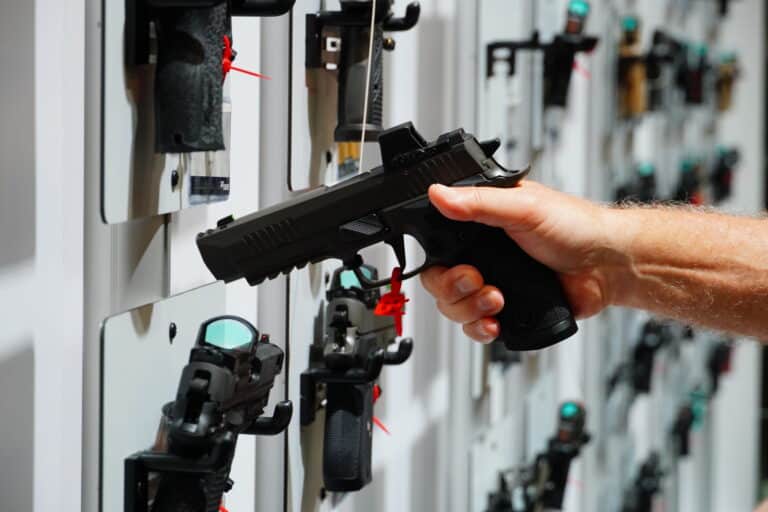Writing one bad check for less than $500 is grounds for permanent disarmament, a federal appeals court has ruled.
On Tuesday, a unanimous three-judge panel for the Tenth Circuit Court of Appeals once again ruled against Melynda Vincent, a Utah single mother who sought to restore her gun rights despite a 17-year-old conviction for bank fraud. It previously ruled against Vincent but was tasked by the Supreme Court with reconsidering the case in light of its most recent Second Amendment decision in US v. Rahimi. The panel said the High Court’s guidance failed to change the outcome.
“Given this remand, we’ve freshly considered the Second Amendment claim and conclude that Rahimi doesn’t undermine the panel’s earlier reasoning or result,” Judge Robert E. Bacharach wrote in Vincent v. Bondi.
The ruling marks the last of the original group of petitions granted, vacated, and remanded by the Supreme Court in the immediate aftermath of its Rahimi decision to be redecided by its appellate panel. Like all of the others, it, too, resulted in an unchanged outcome. That could put added pressure on the Court to take up another Second Amendment case and offer further clarity on the contours of the Second Amendment, as both the Department of Justice and gun-rights advocates have been asking it to do.
Vincent’s challenge stems from a time when she was homeless in the mid-2000s and wrote a fraudulent $498 check at a grocery store. She was convicted of felony bank fraud in 2008 and sentenced to probation without ever serving time in jail. Despite this, her conviction renders her permanently ineligible to purchase or possess a firearm under federal law. Now an employed social worker and mother, she is suing the federal government for the right to own a gun to protect her family.
Unlike some other circuits to evaluate Second Amendment challenges to the federal felon-in-possession ban, the Tenth Circuit chose not to subject the law to the test, history, and tradition-based test established by the Supreme Court in its 2022 New York State Rifle and Pistol Association v. Bruen decision. It also opted not to differentiate between violent and non-violent felons. Instead, it relied on dicta from the Supreme Court’s Heller decision and its own precedent from the 2009 case US v. McCane.
That led the panel to dismiss Vincent’s challenge the first time it heard the case in 2023.
“Though Bruen created a new test for determining the scope of the Second Amendment, the Court didn’t appear to question the constitutionality of longstanding prohibitions on possession of firearms by convicted felons,” Judge Bacharach, a Barack Obama appointee, wrote at the time.
Those same factors again carried considerable weight with the panel in its latest decision Tuesday. It noted that the Court’s Rahimi decision did not explicitly overturn its precedent or suggest that restrictions on felons were unconstitutional.
“One district court in our circuit ruled that Rahimi had overturned McCane, relying on the absence of a historical inquiry,” Bacharach wrote. “But that court and three other district courts have elsewhere concluded that McCane remains binding after Rahimi. We too conclude that McCane remains binding.”
Ultimately, the panel decided it was bound to reach a similar outcome this time around.
“Rahimi again recognized the presumptive lawfulness of these longstanding prohibitions, ‘like those on the possession of firearms by felons,'” Bacharach wrote. “Ms. Vincent argues, however, that the Second Amendment protects nonviolent offenders like herself. But this argument is unavailable under McCane.”






